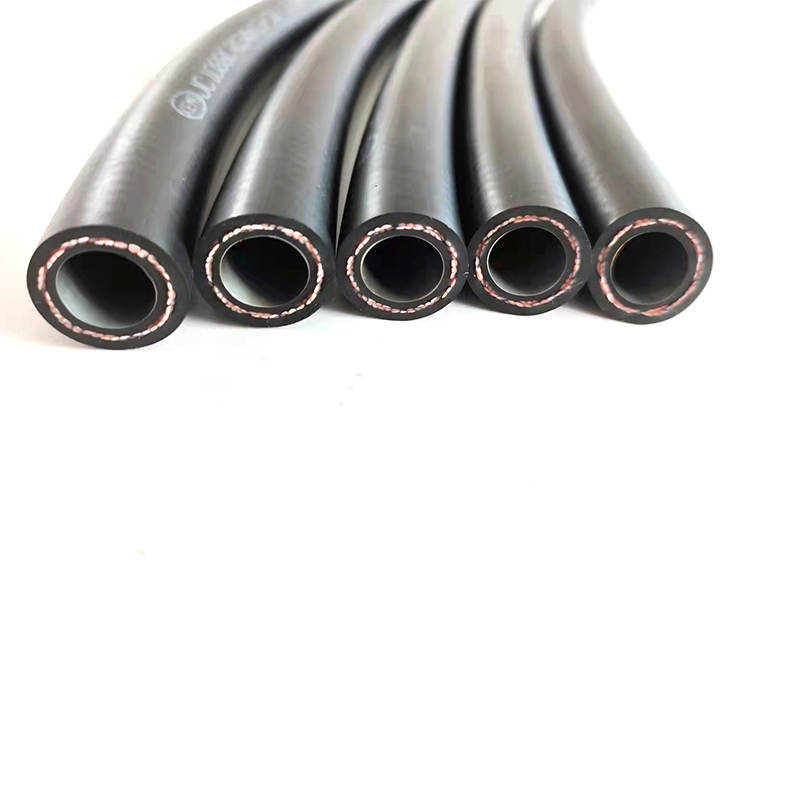Exploring Compatibility of E85 Rated Fuel Lines for High-Performance Vehicles
Nov . 25, 2024 03:50 Back to list
Exploring Compatibility of E85 Rated Fuel Lines for High-Performance Vehicles
Understanding E85 Rated Fuel Lines A Comprehensive Guide
In recent years, the push for more sustainable and eco-friendly fuel options has led to the rise of alternative fuels, particularly ethanol blends. Among these, E85, a fuel blend containing 85% ethanol and 15% gasoline, has gained popularity for its potential benefits to both the environment and automotive performance. However, using E85 requires specific components to ensure optimal performance and safety, particularly concerning fuel lines. In this article, we will explore E85 rated fuel lines, their importance, and considerations for vehicle owners.
What are E85 Rated Fuel Lines?
E85 rated fuel lines are designed explicitly to handle the unique characteristics of E85 fuel. Ethanol is a hydrophilic substance, meaning it attracts water, which can lead to various problems if your fuel system is not adequately equipped. Standard fuel lines made from materials not specifically rated for E85 can degrade over time, leading to leaks and failures that could jeopardize vehicle performance and safety.
The most common materials used in E85 rated fuel lines include fluorinated ethylene propylene (FEP), ethylene propylene diene monomer (EPDM), and certain types of nylon. These materials are chosen for their ability to resist the corrosive effects of ethanol and maintain structural integrity over prolonged exposure.
Why E85 Rated Fuel Lines are Essential
1. Corrosion Resistance Ethanol is known to be more corrosive compared to traditional gasoline. Using E85 rated fuel lines ensures that the materials used can withstand this corrosion. Non-compatible fuel lines may degrade, leading to leaks that could cause fires or other severe hazards.
2. Durability E85 rated fuel lines are built to endure extreme environmental conditions, such as high temperatures and fluctuating pressures. This durability is crucial as it prevents premature failure and extends the lifespan of your vehicle’s fuel system.
3. Performance Ethanol has a higher octane rating than regular gasoline, which can enhance engine performance. However, to fully realize this performance advantage, it is essential to use compatible fuel delivery components. E85 rated lines allow for a smoother, more efficient flow of fuel to the engine.
e85 rated fuel line

4. Compatibility with Modified Engines Many performance enthusiasts have modified their engines to run on E85 for improved horsepower and torque. These modifications often require an entire fuel system upgrade, including fuel lines. E85 rated fuel lines are a crucial part of this upgrade, ensuring that the system can handle the increased demands.
Considerations When Choosing E85 Rated Fuel Lines
When opting to switch to E85 fuel, vehicle owners must consider a few critical factors regarding fuel lines
1. Quality Assurance Always choose fuel lines from reputable manufacturers. Look for products that are explicitly labeled as E85 compatible. Certification from recognized automotive standards can also provide peace of mind regarding quality.
2. Installation Even the best fuel lines will perform inadequately if installed improperly. Ensure that the installation is done by a professional or follow comprehensive guides if you choose to do it yourself. A poorly installed fuel line can lead to various issues, including leaks and decreased performance.
3. Regular Inspections If you decide to run E85 in your vehicle, routine inspections of fuel lines are essential. Look for signs of wear or damage, such as cracking or swelling. Early detection of issues can save you from costly repairs down the line.
4. Fuel System Compatibility It’s essential to ensure that other components of your fuel system, such as fuel pumps and injectors, are also compatible with E85. A complete system approach will maximize performance and minimize issues.
Conclusion
Switching to E85 can be an excellent way to reduce your carbon footprint while enjoying higher performance from your vehicle. However, it's critical to understand the specific requirements, particularly regarding E85 rated fuel lines. By choosing the right materials and ensuring proper installation, vehicle owners can leverage the benefits of E85 fuel safely and effectively. As the automotive industry continues to evolve towards more sustainable practices, understanding the nuances of alternative fuels and their components will be crucial for both performance and safety.
